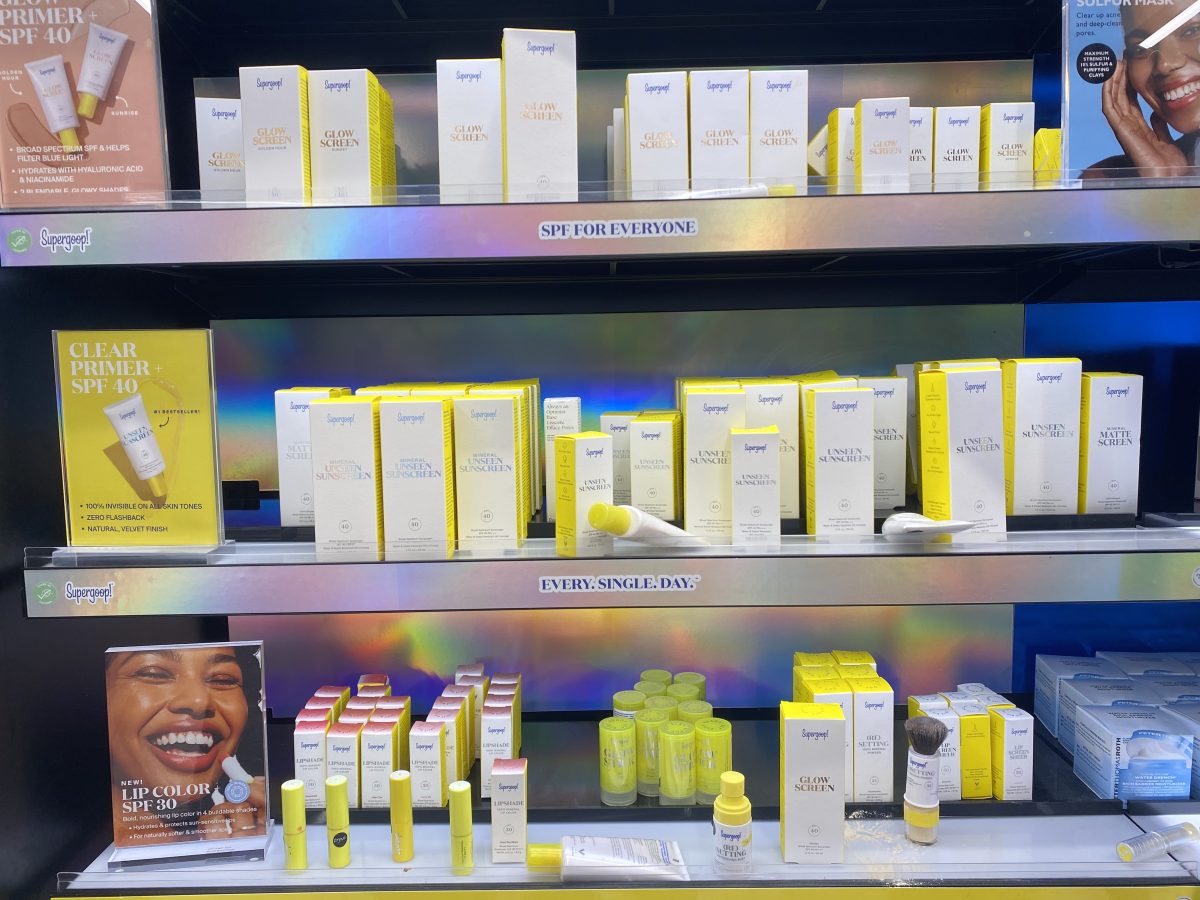Sunscreen is a vital product to include in your skincare. It is so important, and yet many forget or end up skipping this step. There are many benefits towards using sunscreen, so being aware of what you’re potentially missing out on is important.
Sunscreen protects people from the sun. It helps with aging, sun damage, break outs, hyperpigmentation, uneven skin tone, skin cancer, etc. The sun’s UV rays can damage the skin and the DNA in skin cells. Being shielded by the sun’s rays by using sunscreen can prevent you from having to face these issues.
There are two formulations of sunscreen that are most commonly found in-store: chemical and mineral sunscreens. In mineral sunscreens, physical blockers (zinc oxide and titanium dioxide) form a barrier on the skin to block the sun’s rays. In chemical sunscreens, chemical blockers (oxybenzone, octinoxate, homosalate, avobenzone, etc.) absorb the UV rays before the skin does. That being said, they’re both effective sunscreens.
When buying sunscreen, it’s important to check its ingredients and the SPF level. SPF stands for “Sun Protection Factor.” It measures how much UV radiation is required to be able to burn or damage the skin. The higher the SPF level, the better.
To take advantage of all the benefits of sunscreen, it’s important to use it properly. It should be the last thing that goes on in a skincare routine. This is because it will sit on top of all the other products and protect the skin better. It will also prevent the sunscreen from becoming ineffective due to being mixed with other products. The amount of sunscreen needed depends on the skin type, time of day, and the location. However, reapplication of sunscreen is still always important. That will ensure the skin’s protection.
Unlike most skincare products, sunscreen can be used by all ages. It is flexible to all, and can be used at any time. Using sunscreen is a simple thing to add in your everyday routine, yet extremely beneficial.
To beat the inevitable: aging, sunscreen will be able to help with that goal.









